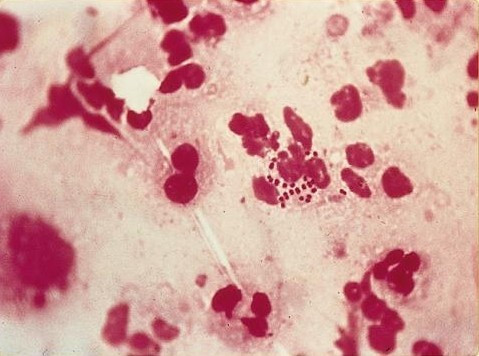Super Gonorrhoea: Students warned to practice safe sex in freshers week or risk painful STD

Students starting at university are being warned about the risks posed by super gonorrhoea, a virulent strain of the sexually transmitted disease which is proving resistant to conventional treatments.
The STD, which requires a stronger antibiotic that is only available at specialised clinics, has triggered an alert after 12 cases have been reported in the university city of Leeds. A further four cases have been discovered in Macclesfield, Oldham and Scunthorpe, with warnings more undiagnosed cases are likely.

Peter Greenhouse, sexual health consultant with the British Association for Sexual Health and HIV, told IBTimes UK that individuals needed to be vigilant across the UK and that while Leeds was bearing the brunt of the virulent strain at the moment more cases of the gonorrhoea would emerge.
"It is quite difficult to underestimate how serious this really is because the Leeds situation wasn't just a small group of people having sex with each other, all linked with each other. If that had been the case, it would have been relatively straightforward to deal with," he said.
"This isn't just happening in one place, it is happening all over the place. What it means is the drug is beginning to fail across the country and by implication across the world."
Greenhouse explained students needed to make sure they wore condoms – even for oral sex – and had a sexual health screening, even if they are not showing symptoms, to make sure they are not at risk.
"You should go to your local health clinic and get a check up, even if you haven't got any symptoms. That will put a huge strain on the local services but that is what they are there for. Most people who have sexually transmitted infections don't have the obvious symptoms which is why there are so much of the infections around," he said.
"It is quite difficult to underestimate how serious this really is." - Peter Greenhouse
Freya Govus, welfare officer at Leeds University Union, told IBTimes UK in a statement that the university was operating in conjunction with other sexual health providers to ensure students' wellbeing.
"Our student advice team works with sexual health organisations in the city, as well as our own Leeds Student Medical Practice to make sure students receive the best advice and support to take care of their sexual health.
We have a supply of free condoms and dental dams available to students throughout the year and if students are concerned about sexual health issues, I would encourage them to talk to our student advice team for a confidential and expert chat."

Gonorrhoea: Symptoms, treatment and transmission
Gonorrhoea is easily passed between people through:
- unprotected vaginal, oral or anal sex
- sharing vibrators or other sex toys that haven't been washed or covered with a new condom each time they're used
The bacteria can infect the cervix (entrance to the womb), the urethra (tube through which urine passes out of the body), the rectum, and less commonly the throat or eyes.
Typical symptoms of gonorrhoea include a thick green or yellow discharge from the vagina or penis, pain when urinating and (in women) bleeding between periods.
However, around one in 10 infected men and almost half of infected women don't experience any symptoms.
Gonorrhoea is usually treated with a single antibiotic injection and a single antibiotic tablet. With effective treatment, most of your symptoms should improve within a few days.
It's usually recommended that you attend a follow-up appointment a week or two after treatment, so another test can be carried out to see if you're clear of infection.
You should avoid having sex until you've been given the all-clear.
- Source NHS UK
© Copyright IBTimes 2025. All rights reserved.






















